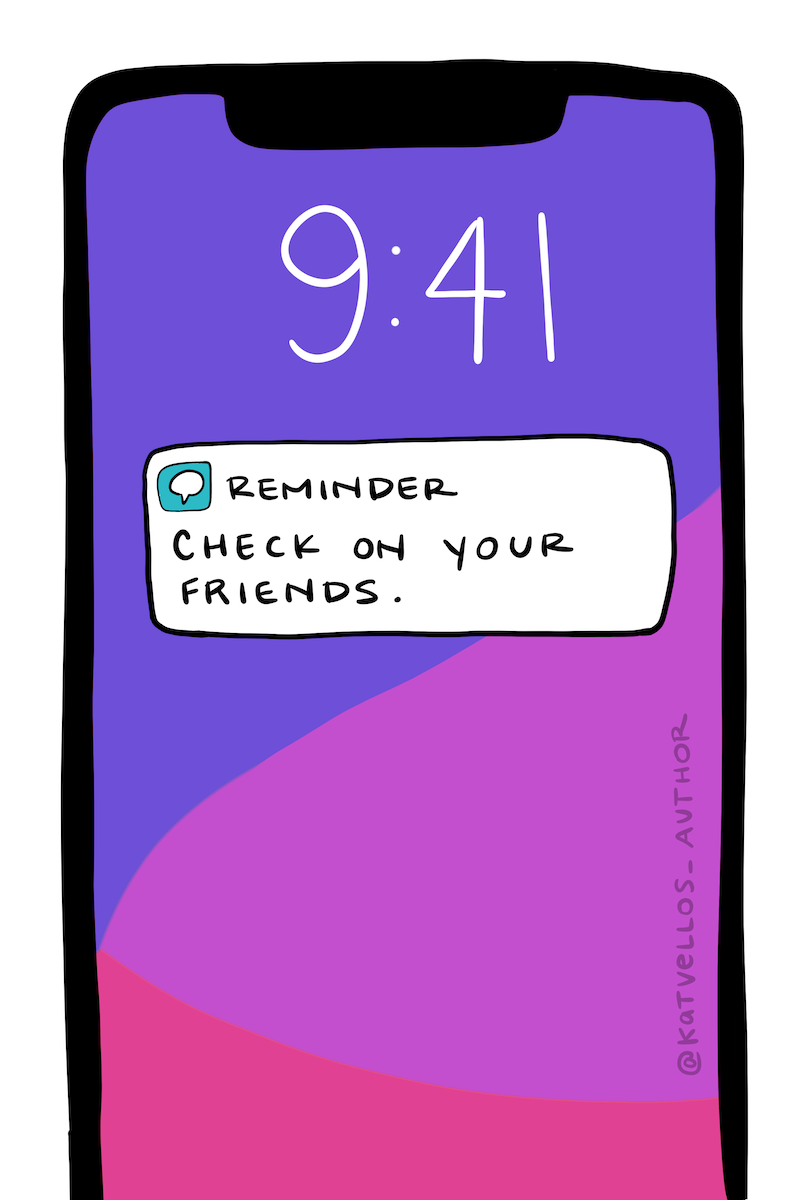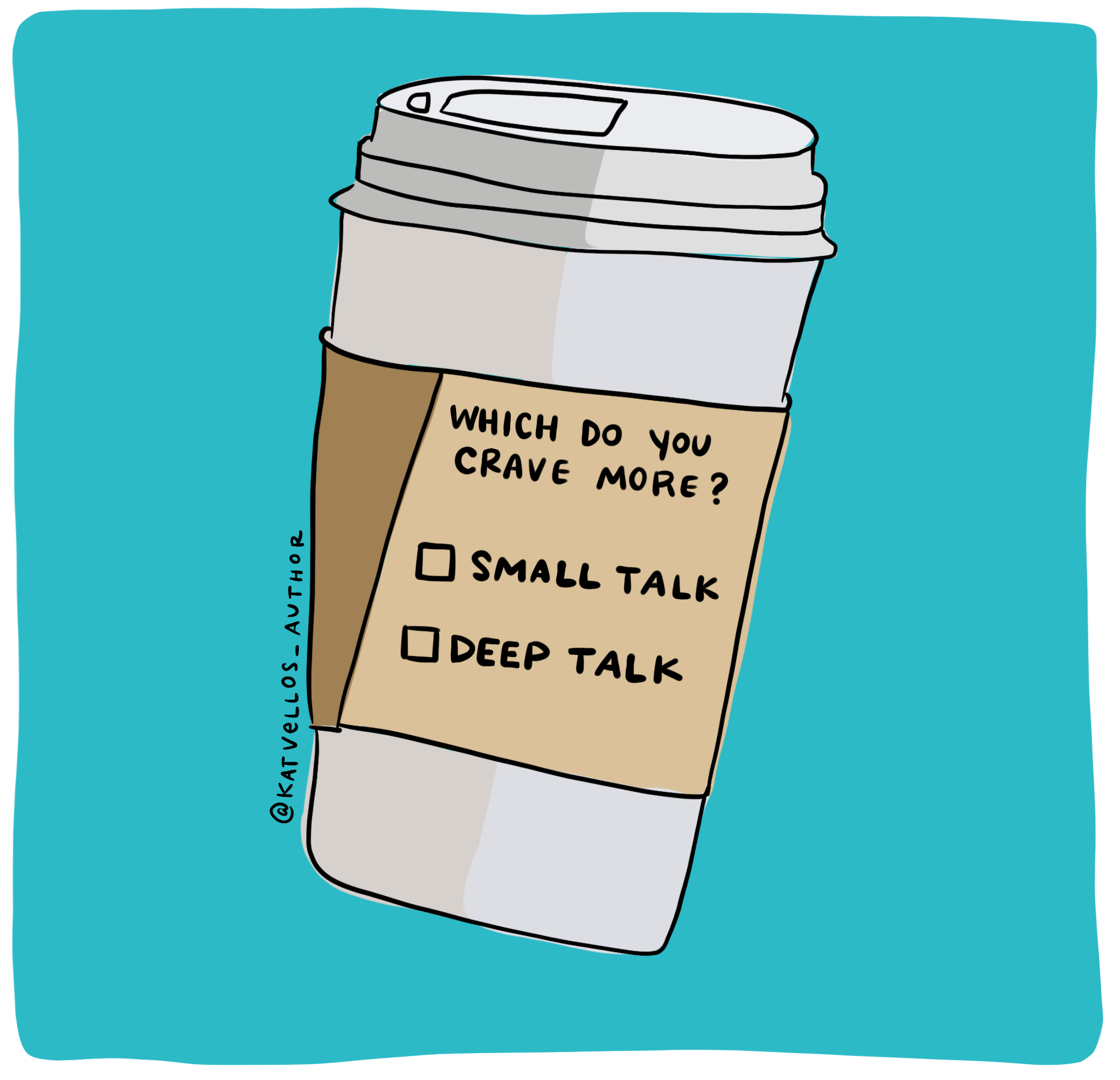4 Different Ways to Ask "How are you feeling?"
If you want to ask your friends some version of “how are you / how are you feeling,” I’d like to personally thank you for having the heart to check on your friends. If you don’t say or do specific things to let your friends know that you care about them, they can mistakenly think that you don’t care.
Checking in sincerely is one of the best things you can do to keep your friendship strong. The problem is, we spend a lot of time asking check-in questions that don’t sound like check-in questions. Here’s what I mean…
Person A: Hey, how are ya?
Person B: Fine, how bout you?
Person A: (doesn’t even hear because they’re already walking away or changing the subject)
Where I live (the U.S., North America, Earth) a LOT of folks use the question “how are you” as a greeting akin to “hi” or “good morning!” So when they say those three words, they don’t really wait for an answer that might be truthfully raw, or honestly longwinded, or even an answer that’s a bummer.
The script we default to predicts that the reply to “how are you” is just supposed to be “good/fine, how are you”. Did you notice that the question marks were missing there? That’s intentional because that’s how it goes down. These words are treated like a greeting instead of a question. If you’re feeling me on this, check out my viral post from 2020 about why I’m not asking “how are you” anymore.
This is one reason why asking “how are you” when you’re ready to hear your buddy pour their heart out doesn’t usually work. Getting to real, raw, true, vulnerable, heart-sparkling answers requires a little extra work. Just a little. Seriously, these are small but mighty changes.
Here are four ways to check in by using questions that will let your friends know they can spill the beans about how they’re truly holding up in this clusterfunk we call [gestures arms wildly] life. Your options are listed below in order from “light check-in” to “wow, this feels like therapy, in a good way.”
How was your morning/afternoon/evening?
Why it works: You’re asking a specific question that’s generally pretty easy to answer. I’m a big fan of breaking a big question down into smaller, easier-to-chew pieces. (Unlike the run-on sentences I occasionally bask luxuriously in.)
If you ask me “How was your morning?” I can say:
“It was beautiful! My leftover banana bread was even more delicious the day after being baked. And when I was walking to the bus stop, I saw tons of butterflies! I felt like freakin Snow White frolicking in a magical meadow.”
Or I can say, “Ugh, my morning was the worst! I twisted my ankle while running for the bus, which I missed anyways, and then I poured a full cup of coffee on my new shirt. I’m done with today. I’m ready to throw in the towel and go back to bed.”
In both cases, I’ve told you what I’m feeling, what I’ve been experiencing and reacting to, and what my mood and headspace are like. I actually told you… (wait for it)… how I am … even though that’s not the question you asked me. Chaching!
Two ways to tweak it:
What’s something you liked about your morning/afternoon/evening?
What’s one thing you would change about your morning/afternoon/evening?
What’s on your mind today?
Why it works: The beauty (and sometimes horror) of other people’s minds is that we have no idea what’s happening in there. It’s a completely separate universe, filled with thoughts, curiosities, hopes, regrets, dreams, ruminations, and random musings that would have never crossed our own minds.
It’s like going to see a movie you know nothing about, or opening up a book that has its cover concealed in brown craft paper. You never know what you’re gonna get. And that unpredictability can make a conversation feel a skosh more like an adventure.
When you ask this question, you give the other person the wheel, a conversational carte blanche. They can choose their level of disclosure. They can talk about the stuff that’s been looping in their brain at 1am which wouldn’t normally come up in conversation but that they’ve been dying to talk about with someone. And with the exception of irrefutably inappropriate answers, there’s almost no wrong answer.
Two ways to tweak it:
What kinds of things have you been thinking about lately?
What’s an unresolved conundrum that you keep going back to?
So how are you, …really?
Why it works: If you pause AND say the italicized “really?” AND give your friend some expectant eye contact AND you wait silently for their reply, your buddy will be able to tell that this isn’t the usual “how are you.” This version shows that you don’t want the BS, fakey, surface, brush-off answer of “fine.” You want the goods. You want the tea. You want the sparkle and the messy. You’re ready to hear it all, and they don’t have to hold back.
The key to making this one work is that you have to practice patience if it takes your friend a few moments to realize that your curiosity is genuine and that it’s safe for them to open up. True listening is an uncommon gift, and it might take your friend a second to realize that’s what’s happening here. Why? Because we are interrupting machines. According to researchers at the University of Gothenburg, the average conversational pause is just a quarter of a second to half a second.
So try to remember Davey’s good advice. Who’s Davey? Oh, David Augsburger. He wisely said, “Being heard is so close to being loved that, for the average person, they are almost indistinguishable.” Give your friends this type of listening love.
Two tweaks:
How are you holding up, …like for real for real?
I’m here to listen, friend. Got any feelings you need to let out?
How’s your heart today?
Why it works: This is by far the mushiest, most therapy-esque, Northern California softy option on this page, but if you found this blog at all, and you’re still reading this post, there’s a good chance that this is your jam. Me too. Nice to meet you, my fellow sensitive kindred soul. Can I get you a glass of kombucha?
This question is my favorite because it doesn’t hold anything back, and it sets the tone for the conversation as a heart-to-heart where all emotions are welcome and sacred. This question exudes tenderness, kindness, patience, and compassionate curiosity. These are all good ingredients if you want to find out how your friends are really feeling. And similar to option #1 at the top of this post, this question adds a time limit to the question ie. “today,” which makes it a bit easier to answer than asking the broad and unboundaried question “how’s your heart?” Unless your friend just had a breakup or heart surgery, in which case, the reference is pretty self-explanatory.
Just like option #3 above which was “So, how are you, …really?” (you are taking notes, aren’t you?), you’re most likely to succeed with this question if you combine it with unrushed, open-minded listening. As you listen, try not to fix, solve, or correct your friends’ feelings. Let go of preconceived notions about how a conversation “should go” and just hang out together in the heart-opening honesty. In Emergent Strategy: Shaping Change, Changing Worlds, Adrienne Maree Brown says, “Our entire future may depend on learning to listen, listen without assumptions or defenses.” Ask this question sincerely, and listen generously. It’s a gift to your friend, and what they share is a gift back to you.
Two tweaks:
What has your heart been longing for lately?
What is life showing you lately?
Ok, so the title of this article was fibbing a little — I didn’t give you four different ways to ask '“how are you feeling?” I actually gave you twelve alternative ways to check on your friends. Twelve! You’re welcome!
These are a handful of the 300+ questions from my Better Conversations Kit. Check it out, you might like it. I looooove this stuff. It feels good to take all my years of experience as a facilitator, user experience designer-n-researcher, and IRL interaction designer, and turn it into easy-to-use strategies that will help you create stronger bonds with the people you care about. In the process, I hope you create a boatload of better friendships — but if you need help with that too, I’ve got you covered.



